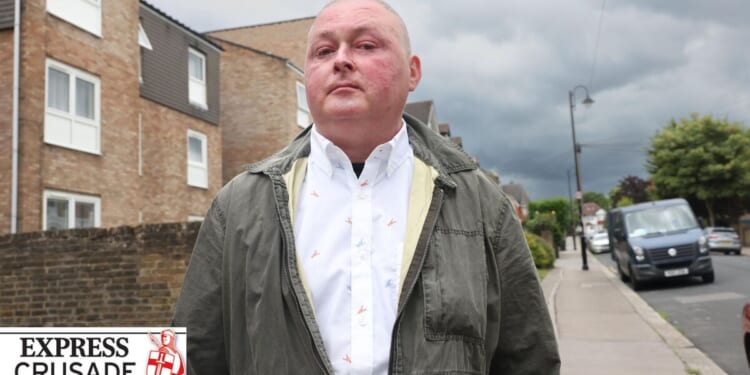From still being awake at 3am due to thinking about my impending death, to wondering whether nausea will ruin my plans to put the rubbish in the bins outside my flat – anyone who knows me knows I’m always up for a good time. So, as a modern-day thrillseeker, it won’t come as a big surprise that I attended my hospital’s annual general meeting this week. I say “my hospital” but actually mean the one where I’m being treated for incurable bowel cancer. It belongs to the NHS and so belongs to everyone. I don’t own a hospital. During the meeting, I learned that the hospital trust is doing some amazing research into preventing cancer.
Hopefully, they will let me write some articles about it in the future because, in the so-called world-leading hospital, it is world-leading research. I also learned that part of the battle of the Daily Express’s Cancer Care campaign will be to ensure hospital bosses understand what mental health care is. As a quick recap for anyone who hasn’t heard of the campaign before, we want cancer patients to receive mental health support both during and after treatment. It is rarely offered at the moment and, even when it is, it just isn’t good enough.
During the meeting, I asked the panel whether they think the hospital trust is doing enough to support cancer patients’ mental health.
I asked online because I was watching on Microsoft Teams and the person who put my question to the chief executive didn’t quite get the wording right.
But even if he had I don’t think she would have come up with a different answer because I don’t think she realises what I mean by mental health support.
She spoke about the mental health service they have as part of the hospital, which includes psychologists who specialise in working with cancer sufferers. It’s a part of the hospital I only learned about nine months after starting cancer treatment. And, to add insult to injury, I only learned about it by reading an article in the hospital’s in-house magazine.
Apparently they are looking at how to expand the service which is undoubtedly a good thing. Hopefully this means that all patients will be told about it on their first day at the hospital.
But for the chief executive to talk only about that service in her answer shows me that she fails to grasp the point I was getting at.
Mental health is the most significant side-effect of cancer treatment, but thankfully, most patients won’t need the high-level support that psychologists can provide.
Instead, what they all need is for their medical teams to recognise this side-effect and help their patients cope with it, by monitoring how they are feeling and referring them to appropriate places.
For example, someone who is feeling lonely may get better results by joining a support group made up of people who have gone through the same thing, rather than needing to see a psychologist, and someone stressing about paying their bills would be better off seeing a benefits adviser.
In the coming weeks I’m planning to write to the chief executives of every hospital trust that treats people suffering from cancer to ask them to commit to ensuring that all these patients have mental health support during and after treatment.
Given my experience this week, I’ll be sure to outline what this actually means so they can’t just say “We are fine because we have psychologists.”















